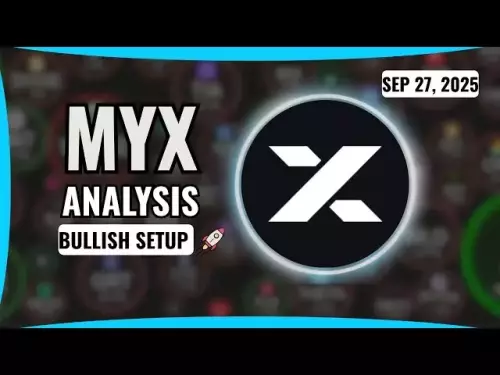-
 bitcoin
bitcoin $109523.663807 USD
-0.13% -
 ethereum
ethereum $4019.526508 USD
2.06% -
 tether
tether $1.000482 USD
0.00% -
 xrp
xrp $2.776815 USD
0.18% -
 bnb
bnb $958.942396 USD
0.12% -
 solana
solana $204.294698 USD
3.84% -
 usd-coin
usd-coin $0.999693 USD
0.00% -
 dogecoin
dogecoin $0.232115 USD
2.09% -
 tron
tron $0.338028 USD
0.84% -
 cardano
cardano $0.790920 USD
1.50% -
 hyperliquid
hyperliquid $44.871443 USD
5.60% -
 ethena-usde
ethena-usde $1.000322 USD
0.04% -
 chainlink
chainlink $21.034165 USD
2.60% -
 avalanche
avalanche $28.794831 USD
-0.54% -
 stellar
stellar $0.360466 USD
1.24%
How to operate currency buying contracts and leverage trading?
Leverage trading magnifies both potential profits and losses, making it essential for traders to carefully consider their risk tolerance and market conditions before employing it.
Dec 16, 2024 at 11:11 am

Currency buying contracts and leverage trading are fundamental concepts in the world of cryptocurrency trading. This comprehensive guide will delve into the mechanics of these trading strategies, providing a step-by-step approach to understanding and implementing them. Whether you're a seasoned veteran or a newcomer to the cryptocurrency market, this in-depth guide will equip you with the knowledge and skills necessary to navigate these trading techniques effectively.
Understanding Currency Buying Contracts- Definition of Currency Buying Contracts:
Currency buying contracts are derivative financial instruments that allow traders to speculate on the future price movements of currency pairs. These contracts represent an agreement between two parties to exchange a specific currency at a predetermined price and time. The buyer of the contract anticipates an increase in the currency's value, while the seller expects a decrease.
- Types of Currency Buying Contracts:
Various types of currency buying contracts exist, including futures, options, and forwards. Futures contracts are standardized contracts traded on an exchange, while options provide the buyer with the right but not the obligation to buy or sell a currency at a specified price. Forwards are tailor-made contracts not traded on an exchange.
- Pricing of Currency Buying Contracts:
The price of a currency buying contract is determined by several factors, including the spot price of the underlying currency, the contract's maturity date, and the prevailing interest rates. The spot price is the current market price of the currency, while the maturity date represents the date on which the contract expires.
Leveraging Currency Buying Contracts- What is Leverage Trading:
Leverage trading involves borrowing capital to increase one's trading position and amplify potential profits. By employing leverage, traders can control a larger amount of currency without committing the entire capital upfront. The use of leverage magnifies both profits and losses, making it a high-risk, high-reward strategy.
- Applying Leverage to Currency Buying Contracts:
When buying currency contracts with leverage, traders utilize their own funds (known as margin) as collateral for the borrowed capital. The ratio of borrowed funds to margin determines the leverage multiplier. For instance, a leverage multiplier of 10x means that for every unit of margin, the trader can control ten times the value of the contract.
- Risks and Considerations of Leverage Trading:
Leverage trading amplifies not only potential profits but also potential losses. If the market moves against the trader's position, losses can quickly outstrip the original margin, leading to a margin call. Traders should carefully consider their risk tolerance and market conditions before employing leverage.
Step-by-Step Guide to Operating Currency Buying Contracts- Choose a Brokerage:
Select a reputable and regulated brokerage that offers currency buying contracts. The brokerage should provide competitive trading fees, user-friendly platforms, and dedicated customer support.
- Open an Account and Fund It:
Create a trading account with the selected brokerage and deposit funds to cover your margin requirements and trading fees. Determine the appropriate leverage ratio based on your risk tolerance and trading strategy.
- Place a Buy Order:
To buy a currency buying contract, place a buy order specifying the currency pair, contract size, and leverage multiplier. The contract size represents the number of units of a currency that will be exchanged upon contract expiration.
- Monitor Your Position:
Once the buy order is executed, closely monitor your position by tracking price movements and adjusting the stop-loss and take-profit orders as necessary. Stop-loss orders limit potential losses, while take-profit orders lock in profits at a predetermined price.
Step-by-Step Guide to Leverage Trading- Determine Your Leverage Multiplier:
Based on your risk tolerance and trading experience, select an appropriate leverage multiplier. Higher multipliers amplify both profits and losses, so consider your financial capacity.
- Calculate Your Margin:
Knowing the contract size and leverage multiplier, calculate the required margin amount. The margin acts as collateral for the borrowed capital and protects the brokerage in case of adverse price movements.
- Monitor Your Leverage Exposure:
Continuously monitor your leverage exposure by calculating the ratio of borrowed funds to margin. Ensure that your margin level does not fall below the maintenance margin requirement set by the brokerage.
Disclaimer:info@kdj.com
The information provided is not trading advice. kdj.com does not assume any responsibility for any investments made based on the information provided in this article. Cryptocurrencies are highly volatile and it is highly recommended that you invest with caution after thorough research!
If you believe that the content used on this website infringes your copyright, please contact us immediately (info@kdj.com) and we will delete it promptly.
- Sleep Token's Macabre Metal: A Ritualistic Rise to Rock Stardom
- 2025-09-27 22:25:15
- BlockchainFX: Is This Presale the Next Binance?
- 2025-09-27 22:25:15
- ORDER Token's Binance Listing Ignites Crypto Rally: What Traders Need to Know
- 2025-09-27 22:30:01
- Ethereum ETFs Feel the Heat: Investors Exit as Staking Approval Looms?
- 2025-09-27 22:30:01
- Crypto Presales & Meme Coins: Hunting for the Next 100x Opportunity
- 2025-09-27 22:30:01
- Cardano (ADA) Price Prediction: Bullish Scenarios and Market Dynamics
- 2025-09-27 22:30:16
Related knowledge

How do I enable the "scalping-only" mode for Cardano (ADA) contracts?
Sep 24,2025 at 03:19am
Understanding Scalping Strategies in Crypto Derivatives1. Scalping in cryptocurrency trading refers to executing multiple short-term trades within min...
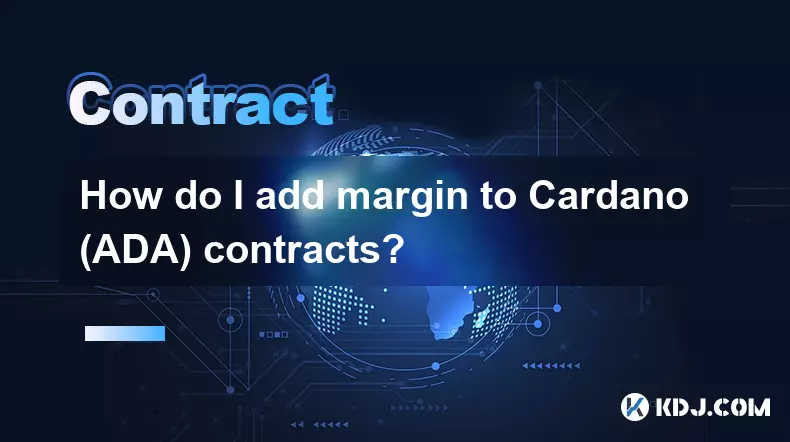
How do I add margin to Cardano (ADA) contracts?
Sep 27,2025 at 07:54pm
Understanding Margin in Cardano (ADA) Smart ContractsCardano operates on a proof-of-stake blockchain that supports smart contracts through its Plutus ...
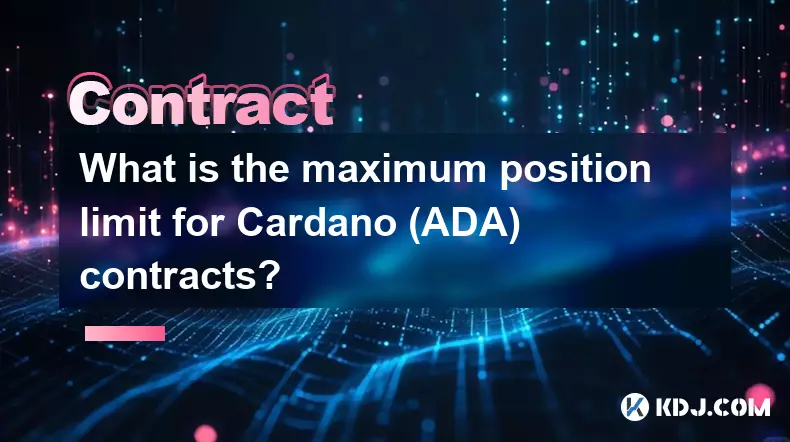
What is the maximum position limit for Cardano (ADA) contracts?
Sep 23,2025 at 11:00pm
Understanding ADA Futures and Derivatives Market Structure1. Cardano (ADA) futures contracts are offered by several major cryptocurrency derivatives e...
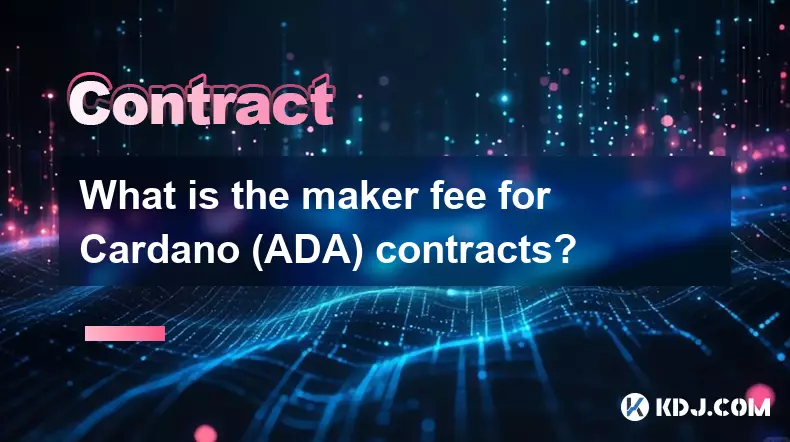
What is the maker fee for Cardano (ADA) contracts?
Sep 26,2025 at 09:01am
Understanding Maker Fees in Cardano (ADA) Contracts1. The concept of maker fees applies broadly across decentralized exchanges and smart contract plat...
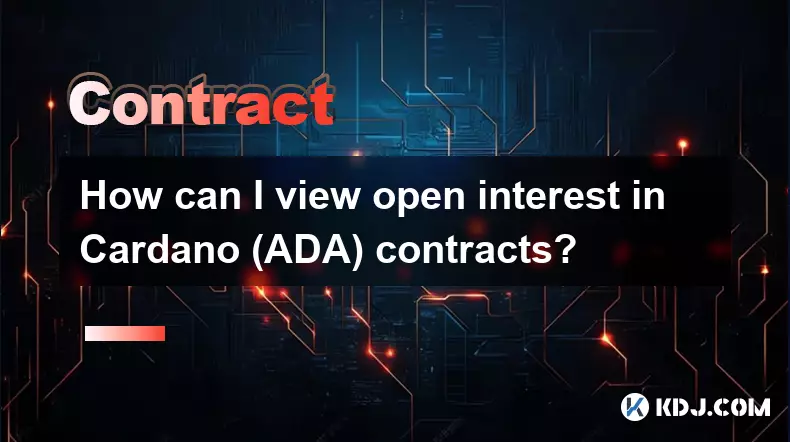
How can I view open interest in Cardano (ADA) contracts?
Sep 24,2025 at 07:36am
Understanding Open Interest in Cardano Derivatives1. Open interest refers to the total number of outstanding derivative contracts, such as futures or ...
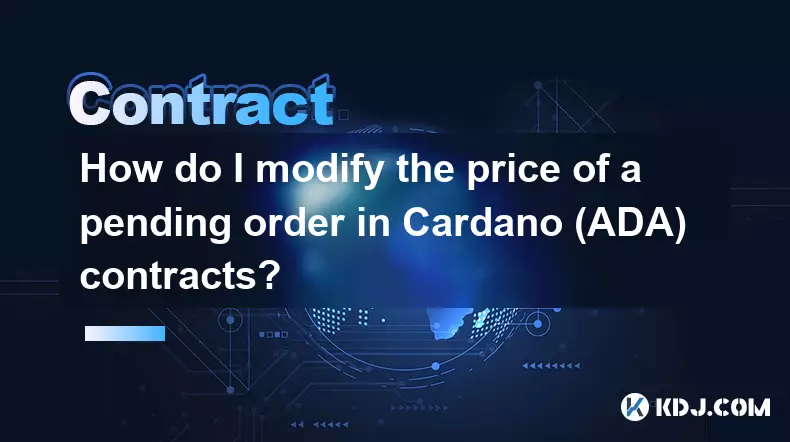
How do I modify the price of a pending order in Cardano (ADA) contracts?
Sep 27,2025 at 01:00am
Understanding Pending Orders in Cardano Smart Contracts1. Cardano operates on a proof-of-stake blockchain that supports smart contracts through its Pl...

How do I enable the "scalping-only" mode for Cardano (ADA) contracts?
Sep 24,2025 at 03:19am
Understanding Scalping Strategies in Crypto Derivatives1. Scalping in cryptocurrency trading refers to executing multiple short-term trades within min...

How do I add margin to Cardano (ADA) contracts?
Sep 27,2025 at 07:54pm
Understanding Margin in Cardano (ADA) Smart ContractsCardano operates on a proof-of-stake blockchain that supports smart contracts through its Plutus ...

What is the maximum position limit for Cardano (ADA) contracts?
Sep 23,2025 at 11:00pm
Understanding ADA Futures and Derivatives Market Structure1. Cardano (ADA) futures contracts are offered by several major cryptocurrency derivatives e...

What is the maker fee for Cardano (ADA) contracts?
Sep 26,2025 at 09:01am
Understanding Maker Fees in Cardano (ADA) Contracts1. The concept of maker fees applies broadly across decentralized exchanges and smart contract plat...

How can I view open interest in Cardano (ADA) contracts?
Sep 24,2025 at 07:36am
Understanding Open Interest in Cardano Derivatives1. Open interest refers to the total number of outstanding derivative contracts, such as futures or ...

How do I modify the price of a pending order in Cardano (ADA) contracts?
Sep 27,2025 at 01:00am
Understanding Pending Orders in Cardano Smart Contracts1. Cardano operates on a proof-of-stake blockchain that supports smart contracts through its Pl...
See all articles


























